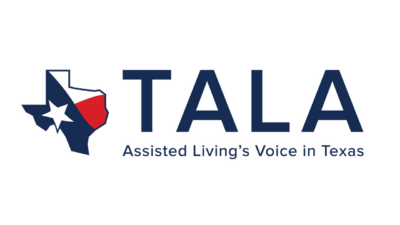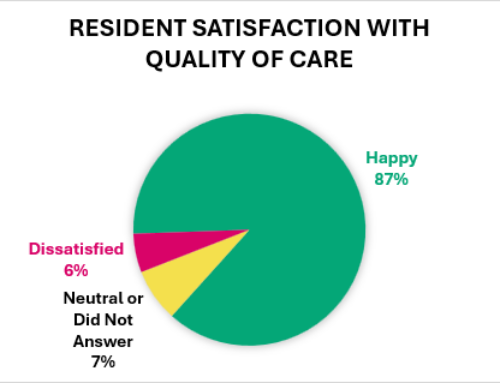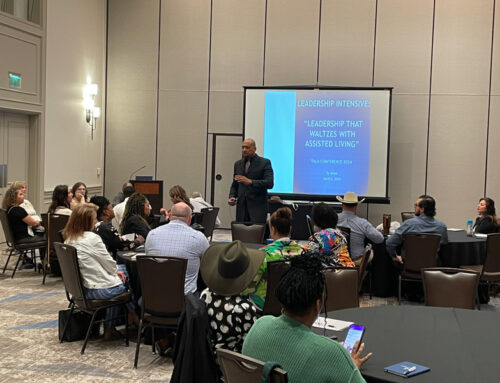This article is the second of a five-part series Become a Great Senior Living Leader by the TALA Workforce Development Committee. Stay tuned each week for the next in the series.
Emotional intelligence is defined as the ability to understand and manage your emotions, as well as recognize and influence the emotions of those around you. The term was first coined in 1990 by researchers John Mayer and Peter Salovey but was later popularized by psychologist Daniel Goleman.
The most effective leaders are alike in one crucial way: They all have a high degree of what has come to be known as emotional intelligence. It’s not that IQ and technical skills are irrelevant. They do matter but are expected as entry-level requirements for executive positions.
Over the years, emotional intelligence—also known as EQ—has evolved into a must-have skill. Emotional intelligence is the strongest predictor of performance. Employees with high emotional intelligence are more likely to stay calm under pressure, resolve conflict effectively, and respond to co-workers with empathy.
How to Identify a Lack of Emotional Intelligence
Lacking critical emotional skills can lead to workplace conflict, such as misunderstandings due to an inability to recognize or understand emotions.
One of the most common indicators of low emotional intelligence is difficulty managing and expressing emotions. You might struggle with acknowledging colleagues' concerns appropriately or wrestle with active listening. Consider the relationships you have with your co-workers.
- Are your conversations strained?
- Do you repeatedly blame others when projects don’t go as planned?
- Are you prone to outbursts?
These are all signs of a lack of emotional intelligence.
It's important to cultivate social skills by understanding and practicing empathy and the core components of emotional intelligence.
The Four Components of Emotional Intelligence
Emotional intelligence is typically broken down into four core competencies:
- Self-awareness
- Self-management
- Social awareness
- Relationship management
1. Self-Awareness
Self-awareness is at the core of everything. It describes your ability to not only understand your strengths and weaknesses, but to recognize your emotions and their effect on you and your team’s performance.
According to research by organizational psychologist Tasha Eurich, 95 percent of people think they’re self-aware, but only 10 to 15 percent actually are, and that can pose problems for your employees (Urich, 2018)[1]. Working with colleagues who aren’t self-aware can cut a team’s success in half (Rubin, 2015)[2] and, according to Eurich’s research, lead to increased stress and decreased motivation.
To bring out the best in others, you first need to bring out the best in yourself, which is where self-awareness comes into play.
2. Self-Management
Self-management refers to the ability to manage your emotions, particularly in stressful situations, and maintain a positive outlook despite setbacks. Leaders who lack self-management tend to react and have a harder time keeping their impulses in check.
A reaction tends to be automatic. The more in tune you are with your emotional intelligence, however, the easier you can make the transition from reaction to response. It's important to pause, breathe, collect yourself, and do whatever it takes to manage your emotions—whether that means taking a walk or calling a friend—so that you can more appropriately and intentionally respond to stress and adversity.
3. Social Awareness
While it’s important to understand and manage your own emotions, you also need to know how to read a room. Social awareness describes your ability to recognize others’ emotions and the dynamics in play within your organization.
Leaders who excel in social awareness practice empathy. They strive to understand their colleagues’ feelings and perspectives, which enables them to communicate and collaborate more effectively with their peers.
Global leadership development firm DDI ranks empathy as the number one leadership skill, reporting that leaders who master empathy perform more than 40 percent higher in coaching, engaging others, and decision-making. Researchers also found that managers who show more empathy toward their direct reports are viewed as better performers by their bosses.
By communicating with empathy, you can better support your team, all while improving your individual performance.
4. Relationship Management
Relationship management refers to your ability to influence, coach, and mentor others, and resolve conflict effectively.
Some prefer to avoid conflict, but it’s important to properly address issues as they arise. Research shows that every unaddressed conflict can waste about eight hours of company time in gossip and other unproductive activities (Lytle, 2015)[3], putting a drain on resources and morale.
In a recent survey by the Society for Human Resource Management, 72 percent of employees ranked “respectful treatment of all employees at all levels” as the top factor in job satisfaction.
HOW EMOTIONAL INTELLIGENCE CAN MAKE LEADERS MORE EFFECTIVE
Leaders set the tone of their organization. If they lack emotional intelligence, it could have more far-reaching consequences, resulting in lower employee engagement and a higher turnover rate.
If you want to keep your team happy, you need to have those tough conversations.
[1] https://hbr.org/2018/10/working-with-people-who-arent-self-aware
[2] https://hbr.org/2015/03/research-were-not-very-self-aware-especially-at-work
[3] https://www.shrm.org/hr-today/news/hr-magazine/Pages/070815-conflict-management.aspx
----------------------------------------------------------------------------------------------------------
Written by: TALA Workforce Development Committee Member
Brad Buschow, Executive Director, Morada Senior Living
This article is the second of a five-part series Become a Great Senior Living Leader by the TALA Workforce Development Committee. Stay tuned each week for the next in the series.





